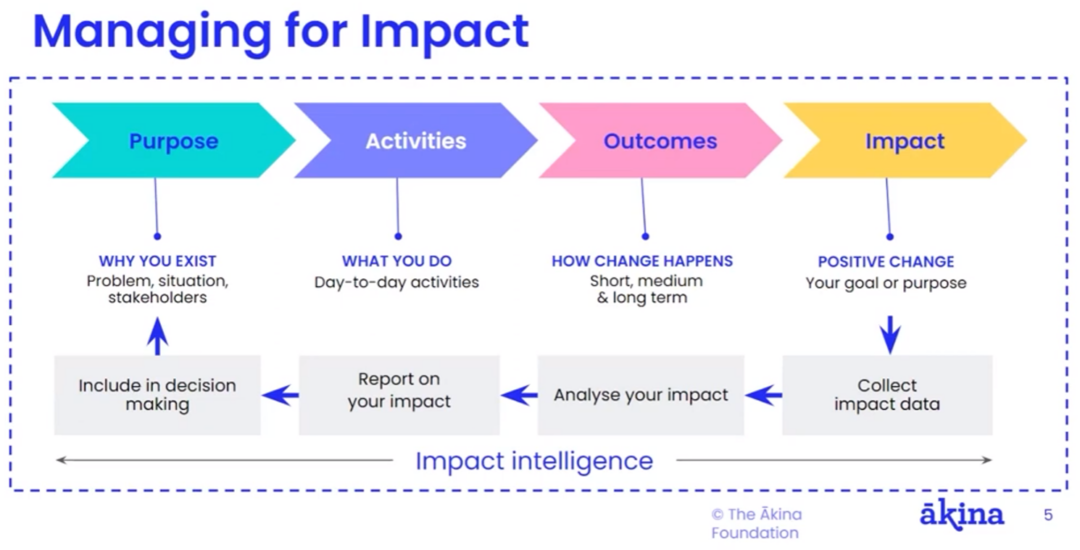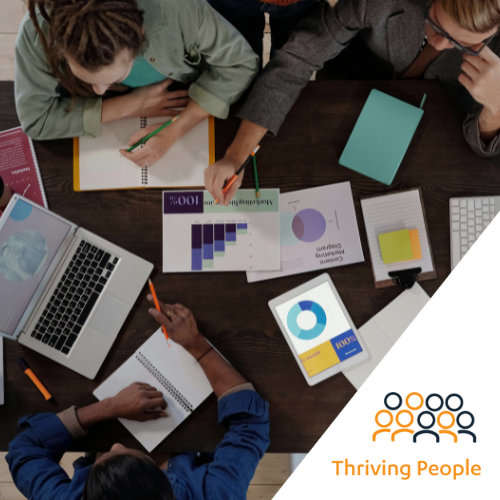SBC’s 2024 Thriving Voices online event series continued last week with our kaputī kōrero focusing on measuring and maximising impact.
Our flagship report ‘Thriving People – Strengthening the ‘S’ in ESG’ showed business has an exciting role to progress social equity through action in three areas of focus, including community investment.
But is your organisation investing in the right things? Is your organisation making a tangible difference? And if so, how is your investment improving people’s lives, the environment and lasting business value?
These three key questions were at the heart of a very engaging and insightful conversation with Ākina’s Nick Douglas and NZ Post’s Carolynn Gubb, who outlined ‘how’ and ‘why’ business needs to adopt a proactive approach that both quantifies and affirms the true value of their efforts to inform better decision making, support better storytelling and deliver better outcomes for all.

Nick got us started by outlining four foundational steps a business can take in building an effective impact measurement framework before sharing practical instruments a business can use to grow and maximise impact.
Check out Nick’s guidance on four fundamental steps to building your impact measurement framework here:
Carolynn Gubb then shared how NZ Post’s approach to social impact has moved from a traditional transactional philanthropic/sponsorship mindset to investing in the community by working partnerships to deliver meaningful impact – focusing on building connections, belonging and inclusion through its Delivering For Good programme.
Here are my three takeaways from the event, which were common themes shared by both presenters:
1. Get clear on your outcomes
It’s crucial for business to get clear on its ideal outcomes by mapping out its theory of change. Importantly, you have to differentiate between ‘attribution’ (i.e. identifying the immediate changes resulting from your business activities) and what outcome you ‘contribute’ to in the longer term.
2. Prove and improve your impact
Both presenters spoke about the need to “prove and improve impact” by firstly defining meaningful measures, and then using your impact data and building your intelligence to inform decision making to grow your impact.
3. Build capability to measure and maximise impact
My final takeaway is the need to start small. Don’t try and measure everything, but focus on the outcomes that are highest priority to your business. Build impact measurement and reporting needs into programme design and build expertise both within your organisation and your community partners to create timely, comparable impact data to support decision making and authentic storytelling.
Check out what Carolynn had to say about how NZ Post is working their community partners to measure and maximise the impact of its Delivering for Good programme here:
Next steps: get involved
Last week we stepped up activation of our ‘S’ in ESG report by convening a small group of interested members to workshop how we can build action and momentum on community investment and impact. Next week, I will be sharing with you the outputs from that workshop, next steps and how you can get involved.
I am also convening a group of interested members to workshop how we can build action and momentum around taking an end-to-end view of supply chain, applying due diligence for human rights and responding to regulatory shifts (such as modern slavery regulation), as well as acting as an advocate and catalyst for positive social impact.
Please get in touch with me ([email protected]) if you would like to get involved, would like to know more or if you have an awesome initiative you would like to share with other SBC members.

